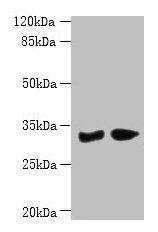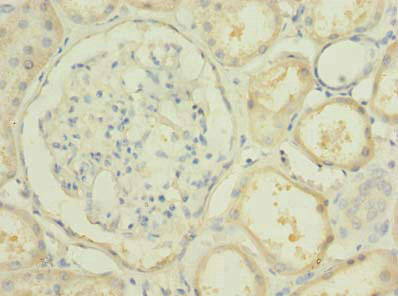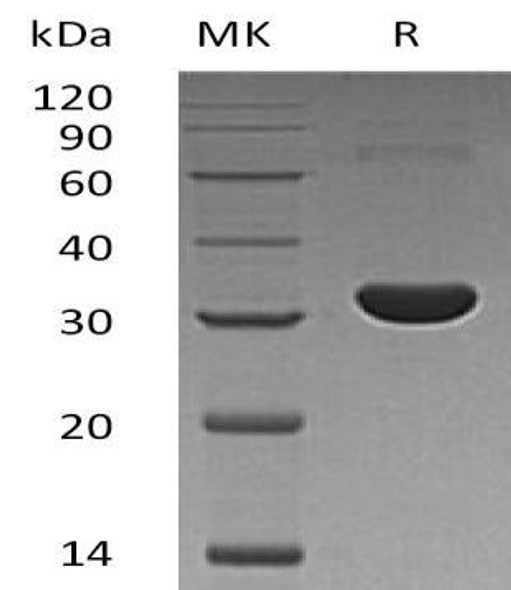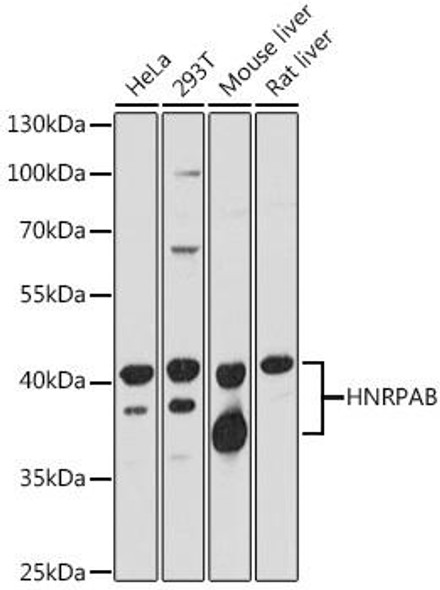Description
PBLD Antibody (PACO28822)
The PBLD Polyclonal Antibody (PACO28822) is a valuable tool for research involving the PBLD protein, a key player in various cellular processes such as lipid metabolism and immune response modulation. This antibody, manufactured using rabbit immunization, exhibits high reactivity with human samples and has been validated for use in Western blot applications.PBLD, also known as Phospholipase B-like 1, is involved in the regulation of lipid metabolism and has been implicated in diseases such as obesity, cardiovascular disorders, and metabolic syndromes. Its role in immune response modulation suggests its potential as a therapeutic target for conditions involving dysregulated lipid metabolism and inflammation.
By targeting the PBLD protein, researchers can gain valuable insights into its function and potential therapeutic applications in diseases associated with lipid metabolism and immune dysregulation. The PBLD Polyclonal Antibody offered by Assay Genie enables precise detection and analysis of the PBLD protein in various cell types, making it an essential tool for studies in metabolic disorders and immunology.
| Antibody Name: | PBLD Antibody (PACO28822) |
| Antibody SKU: | PACO28822 |
| Size: | 50ug |
| Host Species: | Rabbit |
| Tested Applications: | ELISA, WB, IHC |
| Recommended Dilutions: | ELISA:1:2000-1:10000, WB:1:500-1:2000, IHC:1:20-1:200 |
| Species Reactivity: | Human, Mouse |
| Immunogen: | Recombinant Human Phenazine biosynthesis-like domain-containing protein (11-288AA) |
| Form: | Liquid |
| Storage Buffer: | Preservative: 0.03% Proclin 300 Constituents: 50% Glycerol, 0.01M PBS, PH 7.4 |
| Purification Method: | >95%, Protein G purified |
| Clonality: | Polyclonal |
| Isotype: | IgG |
| Conjugate: | Non-conjugated |
 | Western blot All lanes: PBLD antibody at 6µg/ml Lane 1: Mouse liver tissue Lane 2: Mouse kidney tissue Secondary Goat polyclonal to rabbit IgG at 1/10000 dilution Predicted band size: 32 kDa Observed band size: 32 kDa . |
 | Immunohistochemistry of paraffin-embedded human kidney tissue using PACO28822 at dilution of 1:100. |
| Background: | cytoplasm, extracellular exosome, maintenance of gastrointestinal epithelium, negative regulation of epithelial cell migration, negative regulation of epithelial cell proliferation, negative regulation of epithelial to mesenchymal transition, negative regulation of pathway-restricted SMAD protein phosphorylation, negative regulation of SMAD protein import into nucleus, negative regulation of transforming growth factor β receptor signaling pathway |
| Synonyms: | Phenazine biosynthesis-like domain-containing protein (EC 5.1.-.-) (MAWD-binding protein) (MAWDBP) (Unknown protein 32 from 2D-page of liver tissue), PBLD, MAWBP |
| UniProt Protein Function: | PBLD: Belongs to the PhzF family.Protein type: Isomerase; EC 5.1.-.-Chromosomal Location of Human Ortholog: 10q21.3Cellular Component: cytoplasmMolecular Function: protein bindingBiological Process: maintenance of gastrointestinal epithelium; negative regulation of epithelial cell proliferation; negative regulation of transforming growth factor beta receptor signaling pathway |
| UniProt Protein Details: | |
| NCBI Summary: | |
| UniProt Code: | P30039 |
| NCBI GenInfo Identifier: | 17380331 |
| NCBI Gene ID: | 64081 |
| NCBI Accession: | P30039.2 |
| UniProt Secondary Accession: | P30039,Q9HCC2, A8MZJ3, C9JIM0 |
| UniProt Related Accession: | P30039 |
| Molecular Weight: | 31,409 Da |
| NCBI Full Name: | Phenazine biosynthesis-like domain-containing protein |
| NCBI Synonym Full Names: | phenazine biosynthesis like protein domain containing |
| NCBI Official Symbol: | PBLD |
| NCBI Official Synonym Symbols: | MAWBP; MAWDBP; HEL-S-306 |
| NCBI Protein Information: | phenazine biosynthesis-like domain-containing protein |
| UniProt Protein Name: | Phenazine biosynthesis-like domain-containing protein |
| UniProt Synonym Protein Names: | MAWD-binding protein; MAWDBP; Unknown protein 32 from 2D-page of liver tissue |
| Protein Family: | Phenazine biosynthesis-like domain-containing protein |
| UniProt Gene Name: | PBLD |
| UniProt Entry Name: | PBLD_HUMAN |












